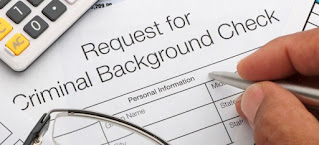Cities must be aware that it is important for the city to access the data appropriately, determine whether the data is classified as private or public, and to understand what will and will not be provided in the way of criminal history information. It is also important to note, candidates for election to public office by the voters are not considered “applicants for employment.”
Under Minn. Stat. § 299C.72, police departments are statutorily authorized to use the data for employment and certain license checks, although cities are required to receive the informed consent of the individual being investigated. Also, the criminal history data cannot be disseminated, and the data must be maintained securely in the police department (not by any other city department). The informed consent form should indicate that the person understands the background search may include a search of all public records and that the person consents to the search.
Additionally, the police agency can only share whether there is a criminal history that would prevent the hire or issuance of a license to the appropriate decision-makers within the city. Ideally, the hiring authority has determined in advance which types of crimes will be disqualifying and conveyed that to the police department before the background check is done. The police department cannot conduct driver’s license checks for employment purposes, as their access to Minnesota Driver and Vehicle Services (DVS) data is restricted for “law enforcement purposes” only.
Minnesota Human Rights Act
The Minnesota Human Rights Act (MHRA) under Minn. Stat. § 363A.08 subd. 4(1), states that no document which has date of birth, gender, or race information will be included in the information given to or available to any person who is involved in selecting the person or persons employed other than the background investigator.Also, no person may act as both background investigator and be involved in the selection of an employee except that the background investigator's report about background may be used in that selection as long as no direct or indirect references are made to the applicant's race, age, or gender. In other words, it could be an unfair discriminatory practice relating to employment for anyone that is involved in the selection process (police chief, city administrator/manager, human resources, or city council member, etc.) to also be involved as the background investigator.
The League of Minnesota Cities has developed an informational memo and model policy to help cities comply with the provisions of this law and ensure the city has a well-considered process in place.
Additionally, the Minnesota BCA performs statutorily required and discretionary criminal history record checks for a fee. A city may receive more information with which to make hiring decisions by going through the BCA, and the city will need to determine which statute applies in order to use the appropriate consent form and access the appropriate data through the BCA.
Some of the statutorily required background checks include those completed:
- for employment as a licensed police officer or for a position leading to employment as a licensed peace officer before the applicant may be employed (626.87),
- by school hiring authorities (123B.03),
- agencies that employ private security personnel (326.336),
- organizations that work with children, the elderly, or disabled (Serve America Act),
- rental property owners (including cities) who hire individuals to manage their property (299C.66 - 71),
- fire department employees under 299F.035, and
- children service workers under the Child Protection Background Check Act (299C.60 - 64).
Additional information about these statutorily-required background checks can be found here.
The League also offers some great overview information on related background checks — including internet searches, social media checks, reference checks, and education verifications — in Chapter 2 of the HR Reference Manual (on hiring), which can be found here.
If you have any questions, you may contact me at tstille@lmc.org or give me a call at (651) 215-4051.
Remember: Responder Safety = Public Safety
Up next: June is PTSD Awareness Month – The Power of Purpose and Healing
In the meantime, stay safe and be careful -
Tracy



No comments:
Post a Comment